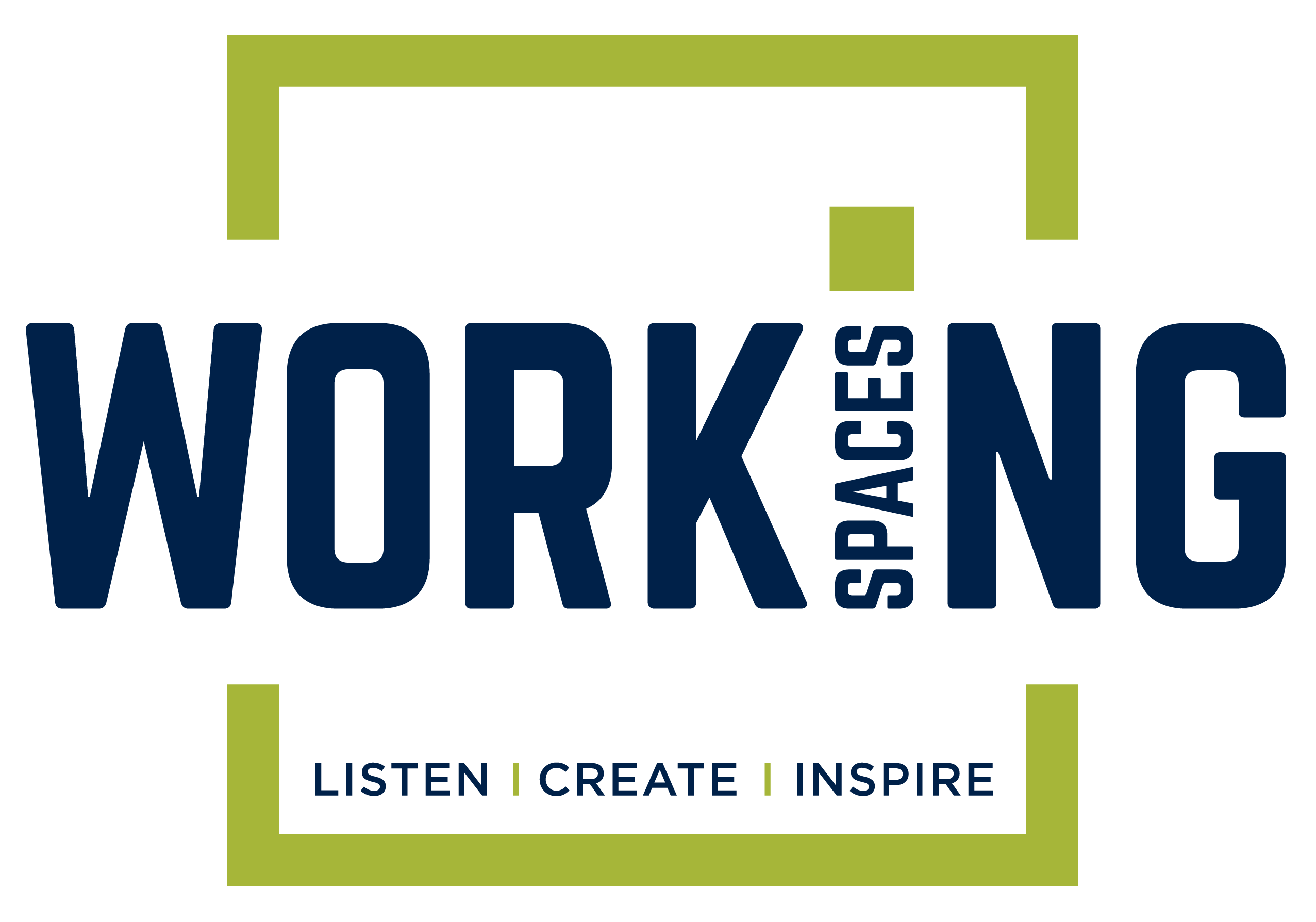
As the youngest generation currently in the workforce, Generation Z is reshaping the modern office with their unique perspectives, expectations, and approaches when it comes to work. It’s essential for organizations to understand Gen Z and what they want in a workplace in order to attract and retain this top young talent, while also fostering an office environment that is inclusive of all generations of workers.
Understanding Gen Z
Gen Z was born between 1997 and 2012, so they are the twenty-somethings of the workplace. This generation was born and raised in the digital age, shaped by smartphones, social media, streaming, and always-on connectivity. Unlike Millennials, who lived through the transition from analog to digital, Gen Z has never known a time without high-speed internet and instant communication tools.
Technology has shaped the values and key characteristics of Gen Z, which includes:
Digital Fluency
Other generations saw technology as a tool. For Gen Z, it’s an integral part of their lives. You might say they were born with a smartphone in their hands, so they are adept at navigating digital platforms and leveraging tech to streamline tasks—from managing their to-dos to getting their dinner delivered to their door.
Independence and Self-Reliance
While Millennials were “adulting” (or trying to) during the Great Recession, the 2007 – 2009 economic downturn shaped the childhoods and families of many a Gen Zer. This generation then saw their high school, college, and/or early career years stifled by the global pandemic. Growing up with this much uncertainty shook Gen Z’s confidence in traditional institutions like government, banks, and even higher education. In turn, they are a more self-reliant, resourceful generation with a pragmatic mindset.
Entrepreneurial Spirit
That independence and self-reliance has led many a Gen Zer to be their own boss, pursuing entrepreneurial ventures or side hustles. Gen Z values financial independence, no doubt motivated by the Great Recession and corporate layoffs their parents experienced, so they want to be in control of their finances and diversify their income.
Diversity and Inclusion
Gen Z is the most ethnically and culturally diverse generation in U.S. history. They value representation and inclusivity in all areas of life, including at work. They want to be in a workplace that looks like them, working for a company that is proactively inclusive and not just paying lip-service to “DEI” initiatives.
The Differences and Expectations of Gen Z at Work
With these unique characteristics, Gen Z approaches work differently than previous generations. Recognizing this can help employers design work environments that attract these young employees.
Here’s how Gen Z’s expectations when it comes to work are reshaping workplace dynamics:
Technology Integration and Digital Fluency
Gen Z has been shaped by digital technology and expects workplaces to integrate advanced technologies seamlessly. Outdated systems or inefficient processes frustrate them, as they expect the speed and convenience of the latest technology. Employers who prioritize tech-forward solutions—such as shared digital workspaces, collaboration tools like Miro’s interactive brainstorming and white boards and less formal communication channels like Slack, and remote work capabilities—are better positioned to engage this generation.
Emphasis on Work Flexibility and Balance
Millennials championed “rise-and-grind” hustle culture that quickly gave rise to burnout and conversations around employee engagement and work-life balance. Emboldened by the remote reality of the pandemic years, Gen Z has moved this conversation towards work flexibility. Going beyond work-life balance initiatives like unlimited paid time off, this generation expects the flexibility to work on their own terms and put work in its proper perspective. Hybrid or remote work options, employer-provided mental health resources, and a culture that emphasizes worker well-being while discouraging burnout are non-negotiables for many Gen Z professionals.
Desire for Purpose and Meaningful Work
Having meaningful, purpose-driven work goes hand-in-hand with ensuring worker well-being and engagement. It’s why Gen Z places a higher value on the type and purpose of the work they’re doing over climbing the corporate ladder. Gen Z workers are less likely to stay in a role that doesn’t align with their professional identity or offer a sense of fulfillment, regardless of salary. They are chasing meaning over money, with research indicating that over 50% of Gen Z professionals are intentionally avoiding the management track, as a whopping 69% “associate management with stress, limited autonomy, and poor work-life balance.”
Organizations with a clear mission for their employees, a focus on the impact of individual contributors, and that provide opportunities for both professional and personal growth through the enhancement of skills and expertise (rather than “title promotion”), can better meet this generation’s need for meaningful work while securing their corporate leadership pipeline.
Social Consciousness and Environmental Awareness
Gen Z is more socially and environmentally aware than previous generations and places a higher value on corporate social responsibility (CSR). Working for a company that shares their ethical concerns and reflects their values are important aspects of Gen Z’s professional identity and pursuit of meaningful work. They expect their employers to not merely have a “values statement” but to act on issues like climate change, social justice and inequality, and diversity and inclusion. From adopting corporate sustainability practices to engaging in community service to supporting employee activism, companies who align with these values can better attract and retain Gen Z talent.
Challenges and Opportunities of the Multi-Generational Workplace
There are now four generations in the workforce—Baby Boomers, Gen X, Millennials, and Gen Z, with Generation Alpha coming soon. Managing this level of generational diversity in one workplace is both a challenge and an opportunity. Misunderstandings and communication breakdowns are bound to arise, but you can leverage the diverse strengths of your multi-generational workforce through these initiatives:
- Encourage cross-generational mentoring to promote understanding, debunk stereotypes, and facilitate mutual learning between the generations (e.g. Gen Z can provide their technological expertise, while older colleagues can share institutional knowledge, industry insights, and career guidance).
- Foster open communication to mitigate generational misunderstandings and enhance collaboration with cross-functional projects and team-building activities that engage workers of all ages (e.g. a team volunteering day brings everyone together, while an after-work social can easily become cliquish, plus inconvenient for workers with families)
- Institute inclusive policies, practices, and benefits to ensure all generations of workers feel valued and respected, like flexible benefits tailored to different life stages and recognition and/or leadership opportunities based on performance, rather than seniority.
- Promote a culture of respect by addressing conflict with empathy, seeking to understand the root causes, bridge the generation gap of differing communication styles or work approaches, and find solutions that satisfy all parties involved—from Boomers to Gen Zers.
Working Spaces: A Leader in Creating Inspiring Workspaces
The future of work is collaborative, inclusive, and shaped by the unique contributions of all generations—starting with the bold and forward-thinking ideas of Gen Z. By embracing generational diversity, organizations can harness worker differences as opportunities for innovation and growth.
Working Spaces is committed to creating thoughtful workspaces that support all generations of employees by fostering communication, collaboration, and inclusivity so every employee feels valued and respected. Contact us today to see how we can transform your office into a workspace every generation of worker will love—and can’t wait to work in!
